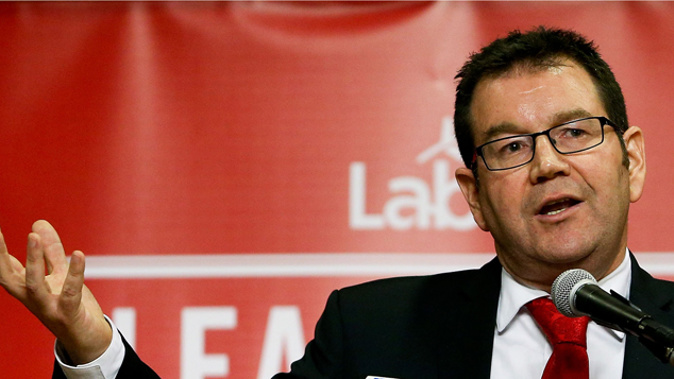
Labour's finance spokesman Grant Robertson says Labour will set out a tax package before the 2017 election to set out how it will raise revenue to address issues in education, health and housing.
At a pre-Budget speech in Wellington, Mr Robertson said if elected Labour would immediately set up a Tax Working Group for a comprehensive review of the tax system and look at tax avoidance and taxes on multinational companies.
LISTEN: Andrew Little: Economy not growing for everyone
However it was also planning to announce its own tax reforms in the interim which would be released before the election "to ensure we have the revenue to address pressing issues, particularly in health, education and housing." It appeared to signal Labour will increase taxes for some.
It comes after Finance Minister Bill English confirmed last week that he was putting off a proposed modest tax cut programme until at least 2017 to put money into bringing down Government debt.
Since then Prime Minister John Key has hinted at a larger tax cut programme which National would campaign on in 2017. It has effectively set taxes as a battle line for 2017.
Mr Robertson said Mr Key was being disingenuous by talking up future tax cuts in the leadup to the Budget without giving any indication how they would be paid for.
"The on-again, off-again relationship between the Government and tax cuts has been a little like the aftermatch of the Bachelor. Bill English broke up with them in his pre-Budget speech on a Thursday, and by Monday morning John Key got back together with them only to announce a day later that his relationship status with tax cuts had changed to 'it's complicated.' He was keeping his options open - tax cuts now, tax cuts later or no tax cuts.
MORE: Joyce dismisses Little's pre-Budget speech
Mr Robertson said if National really believed the cuts were a priority it should deliver a fully-costed tax package now.
"If the Government can’t do that, they should take cuts off the table and stop the charade. Dangling tax cut promises about in an election campaign is irresponsible and disingenuous."
He said New Zealand was not in a position to offer tax cuts when there were families living in cars and garages. Higher priority had to be given to playing catch-up in funding for health, education and housing.
Mr Robertson said he expected a surplus to be delivered in Thursday's Budget but did not believe that a surplus should be the be-all and end-all of the Budget's success.
He said in the longterm, solid and consistent surpluses were desirable. "But there will be times when it is not reached when the need is to give people some hope and opportunity and make the long term investments in our future well-being ... There is no point crowing about a fiscal surplus if the economy is stuttering."
He believed the economy needed a boost from targeted infrastructure spending at a time it was under pressure from high migration, low dairy prices and uncertainty in major markets such as China. He said that should include halting state house sales and building affordable housing.
After hitting his target of a surplus last year, Mr English has loosened his expectations and is now focusing on reducing debt from about 25 per cent to 20 per cent of GDP by 2020.
Mr Robertson said there were "confusing signals" coming from the Government. "The confusing signals coming from Bill English and John Key appear to show a desire to cut taxes, reduce debt, and spend more. I am not sure who is winning the Game of Thrones in the Cabinet room but this is not the time to play money go round."
Mr Robertson said there were what appeared to be signs of success in the economy, including GDP growth and low inflation and interest rates which meant those who bought homes some time ago felt relatively well-off. Sectors such as tourism were also doing well.
He said that put pressure on infrastructure and the environment, but overall "we are a relatively stable, wealthy, peaceful nation." However he said economic recovery had been sluggish and uneven and many workers got no or little pay rises over the past year.
Take your Radio, Podcasts and Music with you









